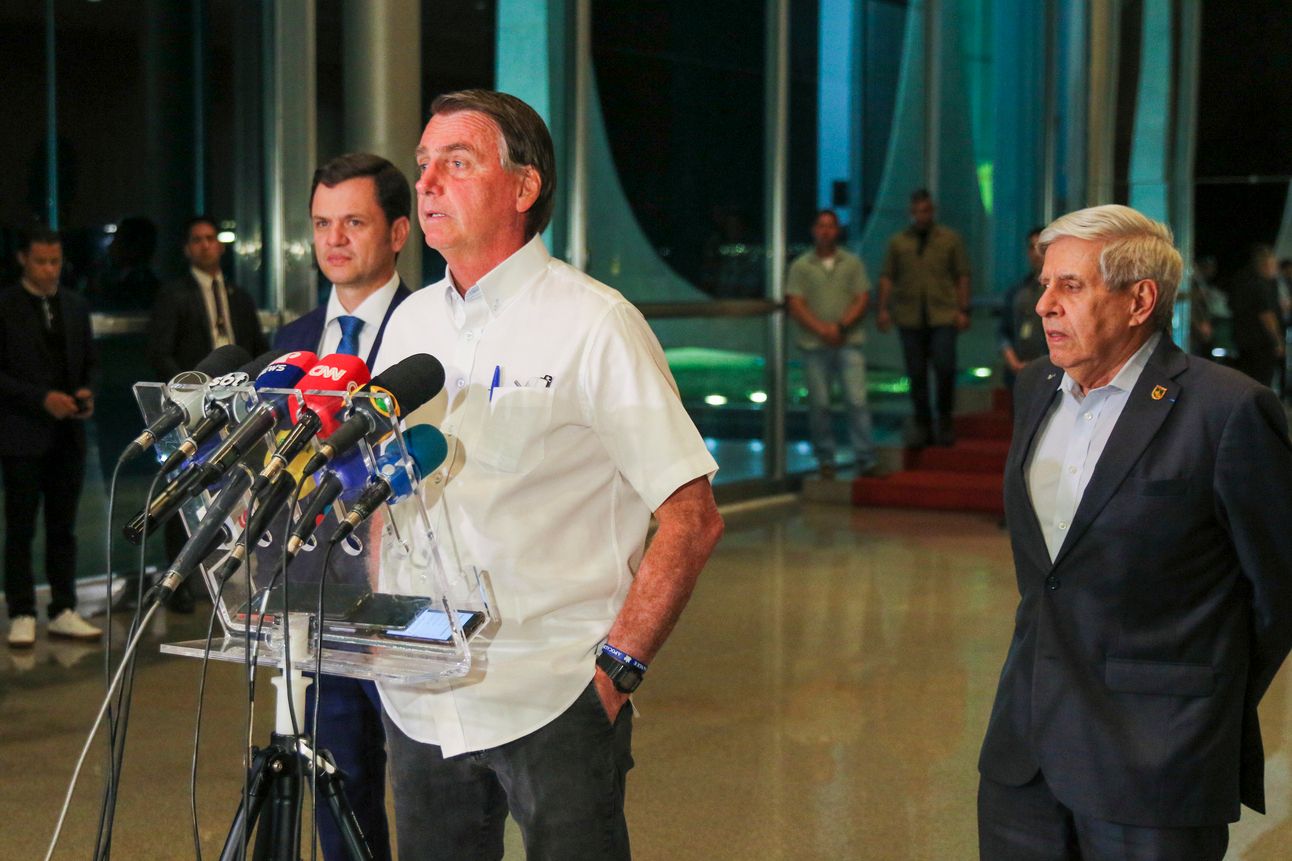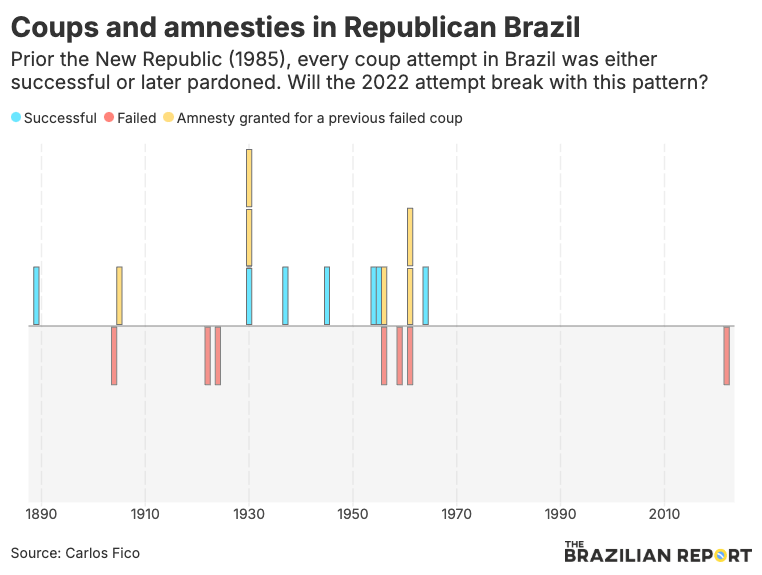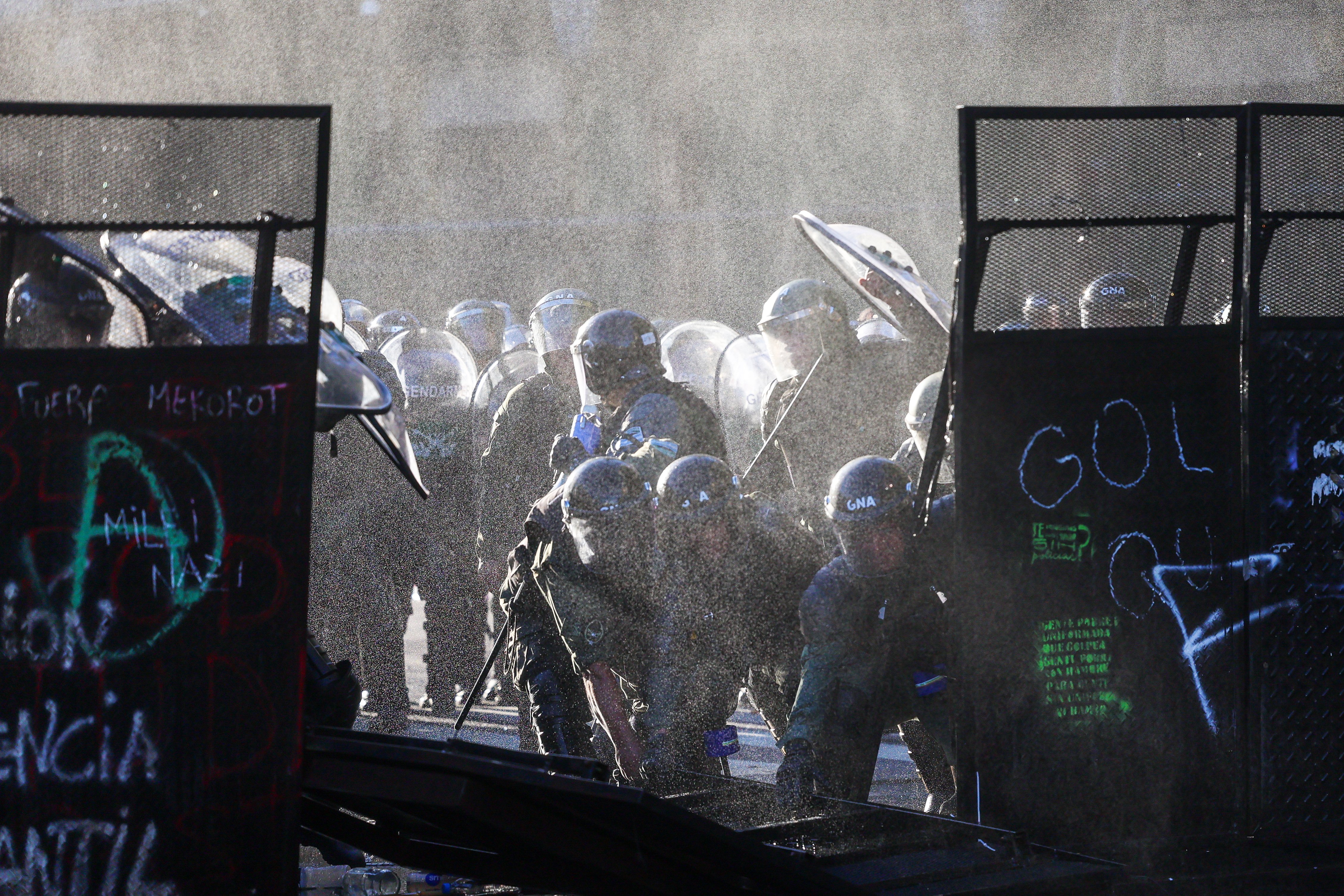
Former President Jair Bolsonaro (center) in 2022, flanked by his former justice minister, Anderson Torres (left), and chief security officer, Augusto Heleno. All three were accused of taking part in a coup attempt. Photo: Fabio Rodrigues Pozzebom/EBC
Walter Salles's Oscar-nominated picture "I'm Still Here" isn't merely a historical reflection — it's a mirror held up to a nation's open wounds. The film, anchored by Fernanda Torres's masterful portrayal of Eunice Paiva — whose politician husband, Rubens Paiva, was disappeared during Brazil's military dictatorship — forces a confrontation with an unresolved past that continues to shape the country's democracy.
The military's grip on Brazilian politics never truly loosened after the 1985 transition to democracy. Unlike in Argentina, where junta leaders faced prosecution, Brazil's transition came with an amnesty law protecting both military officials and leftist guerrillas.
This arrangement preserved military influence under the guise of Cold War anti-communism.
The military's shadow stretched across administrations. Even as Presidents Fernando Henrique Cardoso and Luiz Inácio Lula da Silva advanced truth and reconciliation efforts, they sidestepped direct confrontation. When the Truth Commission created by the Dilma Rousseff administration released its report in 2014, its potential impact was blunted by a political and economic crisis that culminated in Rousseff’s impeachment.
Under Michel Temer's presidency (2016-2018), military influence resurged with the appointment of an Army general as defense minister.
The Jair Bolsonaro administration marked a stark escalation — by 2020, military officers occupied nearly 40% of cabinet positions, the highest rate since the dictatorship. The officers who once ran torture chambers never truly left the stage, and their ideological successors resurfaced under Bolsonaro.
General Augusto Heleno, a key Bolsonaro ally who openly admired the dictatorship's most infamous torturer, Colonel Carlos Alberto Brilhante Ustra, exemplified this resurgence. And when democracy no longer served their interests, they attempted to overthrow it.
Under former President Bolsonaro's leadership, high-ranking officers had spent months undermining electoral trust — a process culminating in the January 8 ransacking of government buildings, an assault on Brazil's democratic institutions that wasn't spontaneous.
Army officials allowed pro-coup demonstrators to establish camps outside military barracks, tacitly endorsing calls for intervention. Federal Police investigations revealed a draft decree for military intervention, reportedly reviewed by Bolsonaro himself.
The investigation implicated 37 officials, including General Heleno, Bolsonaro's security chief; General Walter Braga Netto, his 2022 running mate, arrested in December 2024; and former intelligence chief Alexandre Ramagem, accused of orchestrating key elements of the attempted coup.

Military leadership maintained strategic ambiguity — neither supporting Bolsonaro's coup rhetoric nor explicitly condemning it, preserving the military's perceived role as an alternative to civilian governance.
Brazil now faces a critical juncture. The Supreme Court's decision to consolidate January 8 cases outside military jurisdiction signals a potential shift. The National Justice Council's mandate to correct dictatorship-era death certificates represents another step toward accountability. Supreme Court Justice Flávio Dino, citing "I'm Still Here," has challenged the Amnesty Law's protection of those who concealed dictatorship crimes.
A pivotal development unfolded on Tuesday, when Prosecutor General Paulo Gonet recommended indicting Bolsonaro and 33 others on charges related to crimes against Brazil’s democracy. The decision effectively endorsed all the findings of federal investigators and signals a broader effort to increase the consequences of anti-democratic actions.
Brazil's response to January 8 isn't merely about prosecuting coup plotters — it's a test of democratic resilience. Failure to prosecute would reaffirm military impunity and risk repeating history's darkest chapters.










